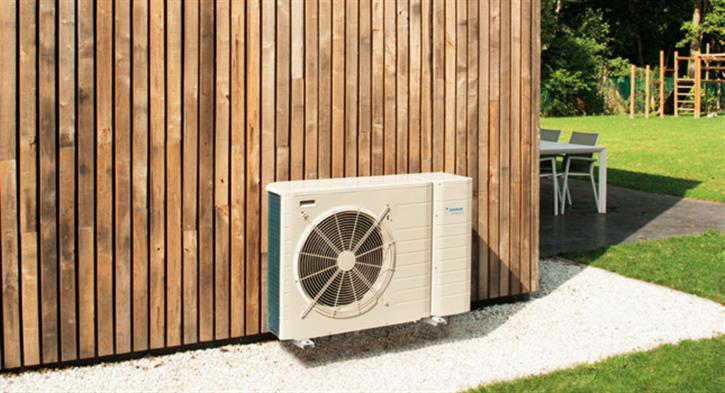

Nancy Jonsson takes a look at how installers can diversify into renewable heating by taking advantage of manufacturer introductory sessions
A recent report by The Committee on Climate Change’s (CCC) Fifth Carbon Budget has envisioned that heat pumps installed in residential properties are expected to reach 2.3 million by 2030.
The CCC recommendation to set the fifth carbon budget to reduce UK greenhouse gas emissions in 2030 by 57%, relative to 1990 levels, has now been accepted by the government and the ambition to continue reducing emissions into the 2030’s has been widely welcomed.
The Renewable Heat Incentive (RHI) recent milestone of 50,000 accredited installations has clearly demonstrated the desire and continuing growth of renewable heating technology. A government funded scheme, the RHI provides payments to homeowners to offset the initial investment in renewable heating technology.
Reports are also stating that more than 69,000 new engineers are needed, in addition to the levels that Britain is currently producing to meet increasing demand due to the on going skills shortage.
This is not an isolated issue within the renewable heating sector, with shortages affecting the wider construction industry as a whole. This does, however, present several benefits for skilled heating installers – the opportunity to take advantage of an increasing market, offering a wider variety of service and consequently, individual installer business growth.
Branching out
That said, taking a leap into the unknown - especially from a business perspective - can be a daunting decision.
Seeking and obtaining the correct advice beforehand is therefore of vital importance, ensuring a fully informed decision is taken when considering the pros and cons of diversification.
Attending open sessions that outline the basics of the technology, demystify the key industry terminology and detail the qualification required within the sector is a useful starting point.
It is here that prospective heat pump installers can ascertain the path they would like to venture and, for example, whether to seek Microgeneration Certification Scheme (MCS) accreditation. MCS accreditation allows for MCS approved products, if installed by an MCS installer, to be eligible for RHI funding – an attractive and tangible benefit for homeowners.
In addition, it also allows an installer to consider monobloc heat pumps for their first steps into air source heat pump installations. Some heat pumps do not require F-Gas qualification as the refrigerant is contained within a fully sealed unit
Furthermore, by attending an open evening or taster session with an industry-leading manufacturer an installer can gain invaluable insight and knowledge in a relaxed, informal environment.
Daikin UK offers Tuesday Taster sessions, held at its nationwide training centres, which offer a live tool demonstration and the opportunity to discuss any potential queries with sector specialists before committing to join the renewable heating community.
Nancy Jonsson is commercial director for heating and renewables at Daikin UK
If you'd like to keep up-to-date with the latest developments in the heating and plumbing industry, why not subscribe to our weekly newsletters? Just click the button below and you can ensure all the latest industry news and new product information lands in your inbox every week.